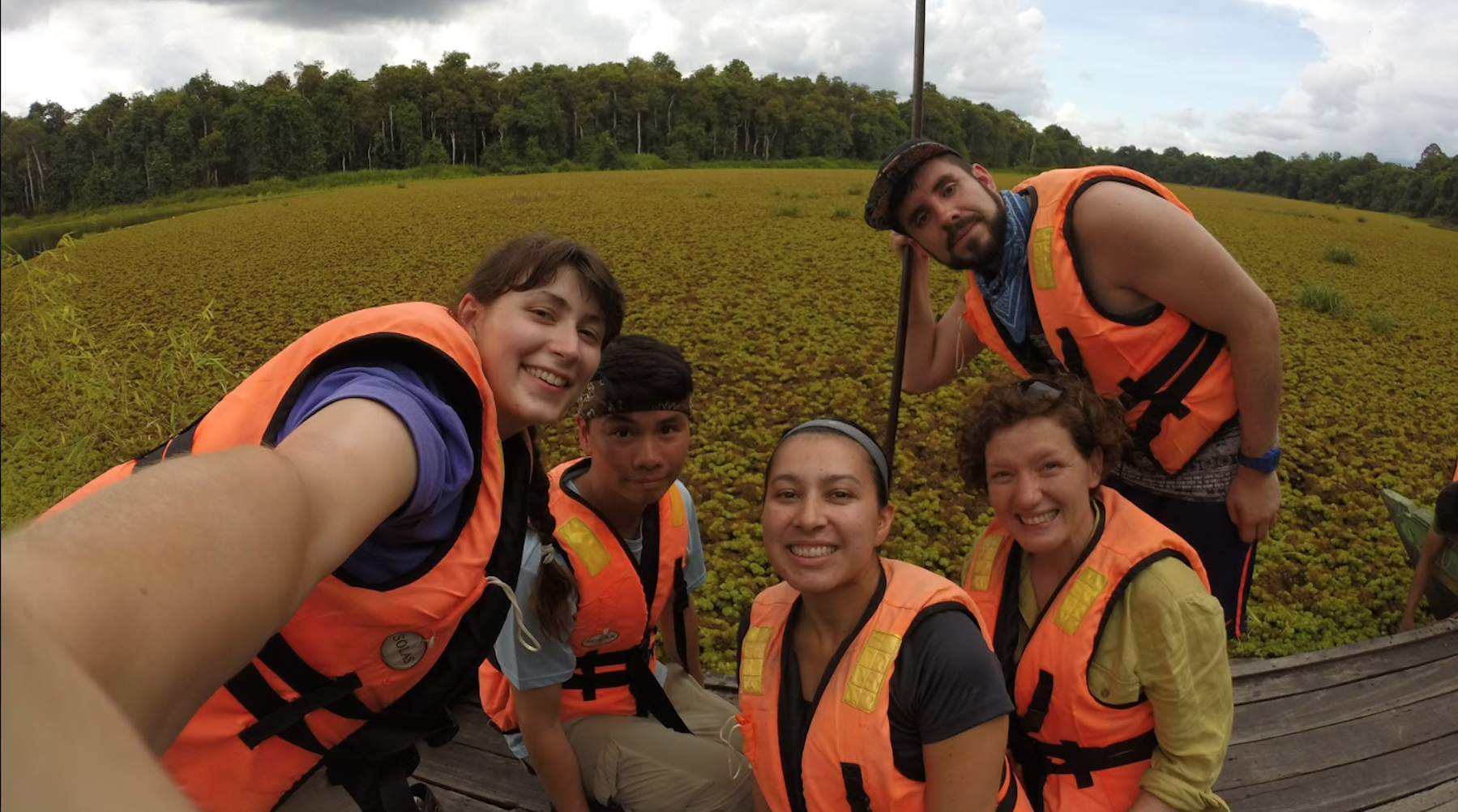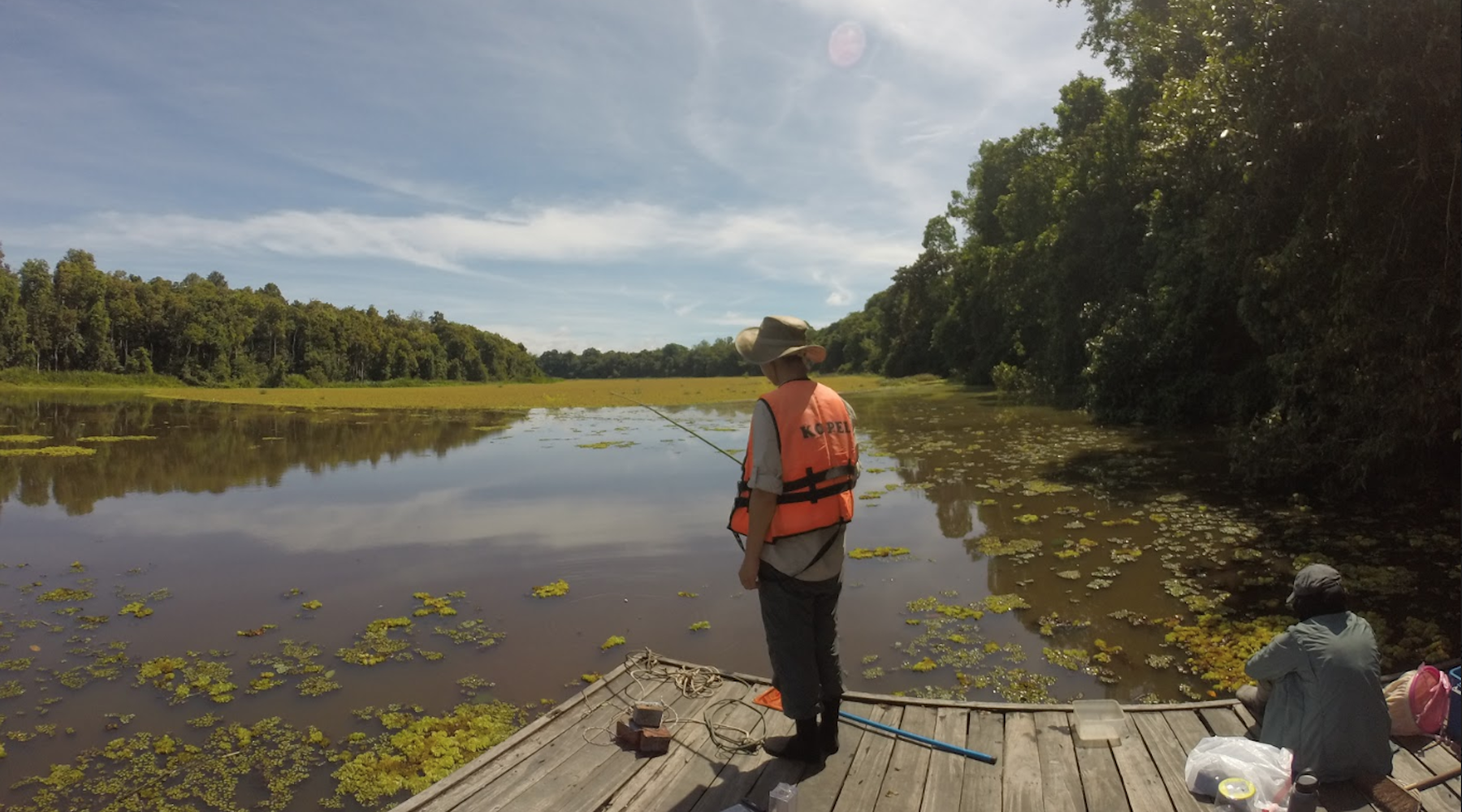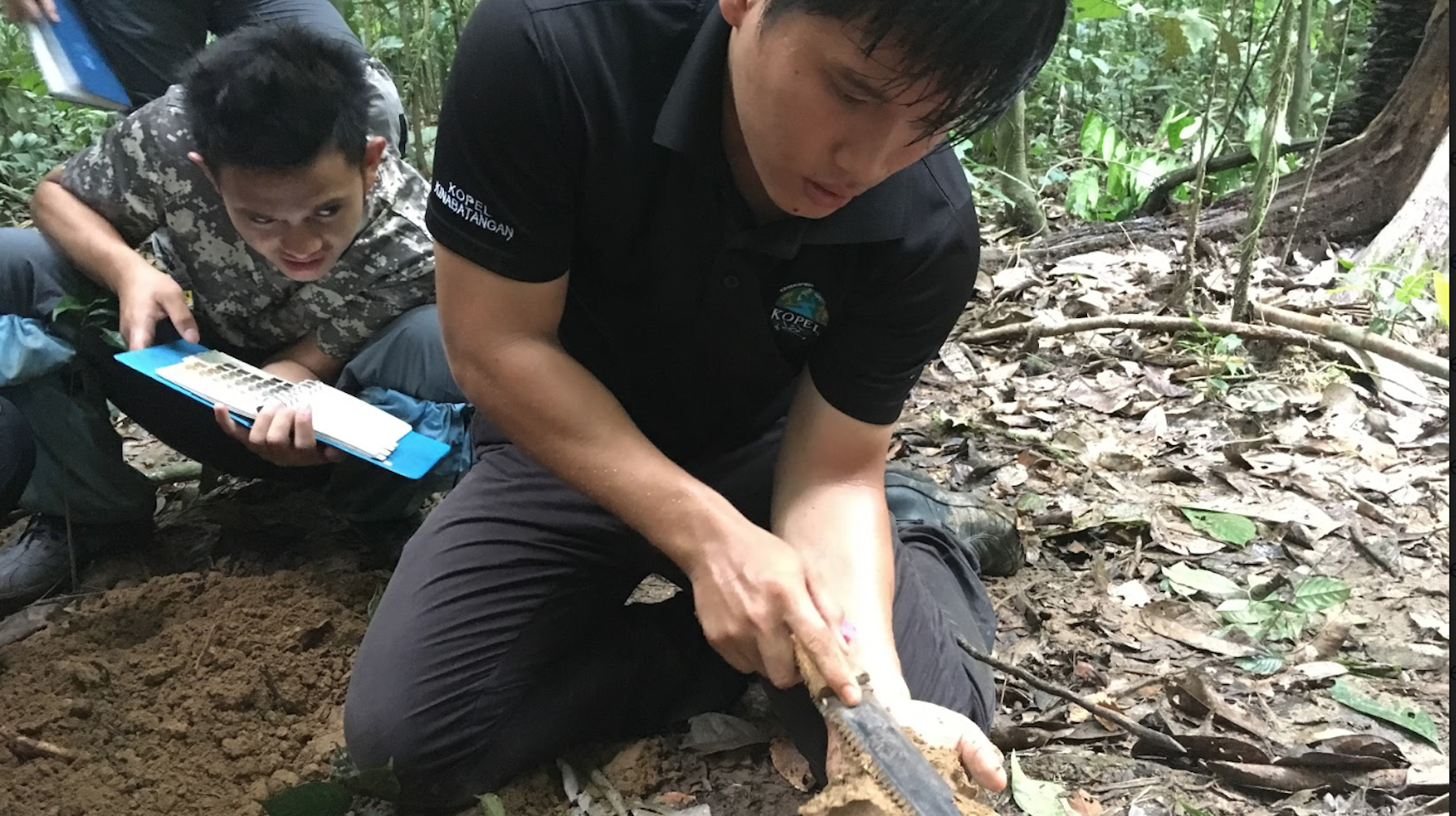Tropical Restoration Ecology
Program Info.
- Gretchen C. Coffman, Ph.D. gccoffman@usfca.edu
- Course name and number: Tropical Restoration Ecology (ENVM 625-01) Summer Session 2
- Date: June 16 through July 1, 2019
- Units: Students receive 2 units for participating in and completing the 2-week field course. They may receive 4 units if they work on a long-term restoration planning effort with Kopel and USF Instructor in the remaining Summer 2018 semester and/or help with soil sampling monitoring and training at Kopel before the class.
- Pre-requisites: ENVM 602 OR ENVS 210 OR BIO 319.
- Consult the Gear List and links.
- Download 2018 syllabus.
Program Description.
Did you know that Malaysian Borneo is the third largest island in the world? And that its rainforests have some of the highest botanical diversity left in Southeast Asia with an astounding array of wildlife species including Orangutans, Long-tailed Macaques, Proboscis Monkeys, Hornbills, Crocodiles, Sun Bears, and Elephants. Learn about the practice of Ecological Restoration as well as the science of Restoration Ecology through hands-on experience in restoring habitat for endangered wildlife in tropical rainforests and riparian ecosystems. The class will take place in Malaysian Borneo along the lower Kinabatangan River at the Tungog Rainforest Eco Camp (TREC).
This field course is designed for both graduate and undergraduate students to learn about the practice of Ecological Restoration as well as the science of Restoration Ecology through hands-on experience in restoring habitat for endangered wildlife in tropical rainforests and riparian ecosystems. Emphasis is placed on the application of ecological principles to restoration design, implementation, and monitoring. Major course topics will include: soils, vegetation, and hydrology sampling at restoration sites; restoration for wildlife habitat; invasive species management; data collection from and using reference sites as models; and monitoring and assessment of restoration projects.


